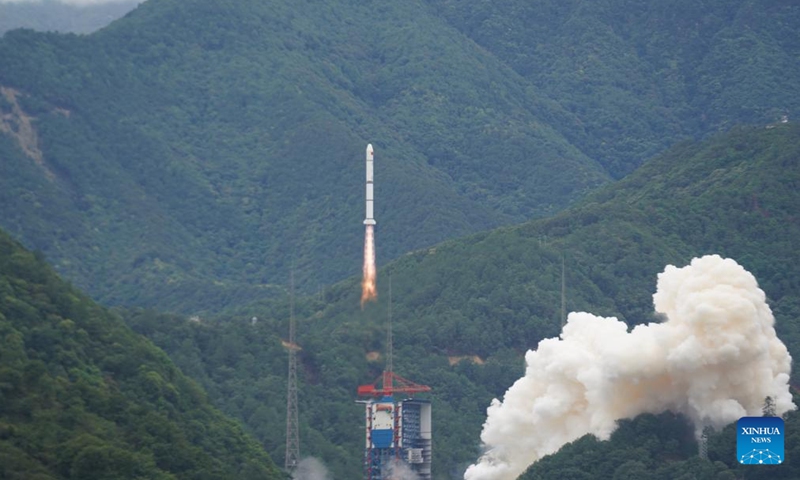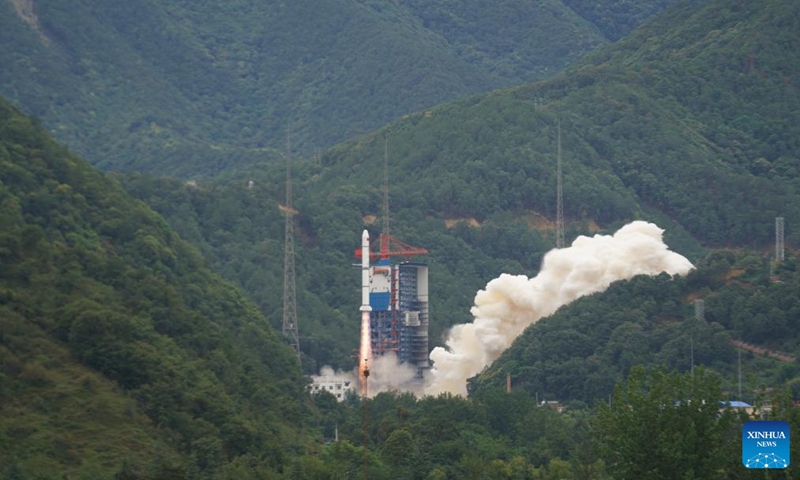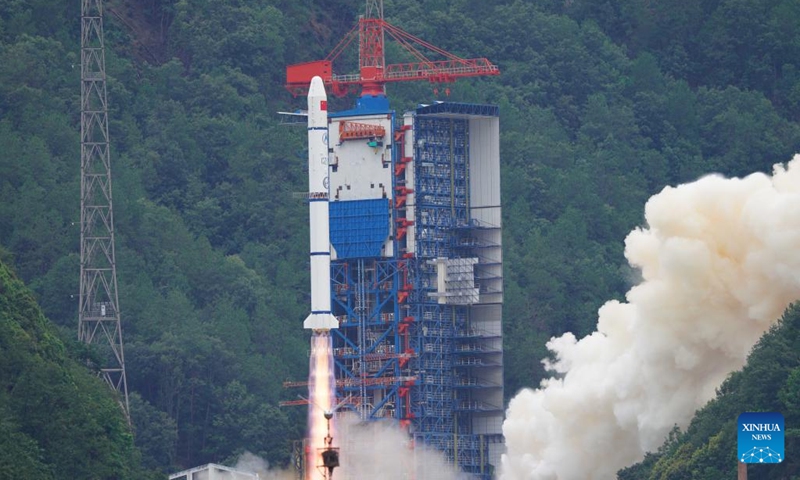
A Long March-2C rocket carrying an astronomical satellite, the Space-based Multi-band Variable Object Monitor (SVOM), blasts off from the Xichang Satellite Launch Center in southwest China's Sichuan Province on June 22, 2024. China on Saturday launched the astronomical satellite, the result of nearly 20 years of hard work between Chinese and French scientists, to capture gamma-ray bursts which flicker like fireworks in the farthest reaches of the universe. (Photo by Chen Haojie/Xinhua)

A Long March-2C rocket carrying an astronomical satellite, the Space-based Multi-band Variable Object Monitor (SVOM), blasts off from the Xichang Satellite Launch Center in southwest China's Sichuan Province on June 22, 2024. China on Saturday launched the astronomical satellite, the result of nearly 20 years of hard work between Chinese and French scientists, to capture gamma-ray bursts which flicker like fireworks in the farthest reaches of the universe. (Photo by Chen Haojie/Xinhua)

A Long March-2C rocket carrying an astronomical satellite, the Space-based Multi-band Variable Object Monitor (SVOM), blasts off from the Xichang Satellite Launch Center in southwest China's Sichuan Province on June 22, 2024. China on Saturday launched the astronomical satellite, the result of nearly 20 years of hard work between Chinese and French scientists, to capture gamma-ray bursts which flicker like fireworks in the farthest reaches of the universe. (Photo by Chen Haojie/Xinhua)
